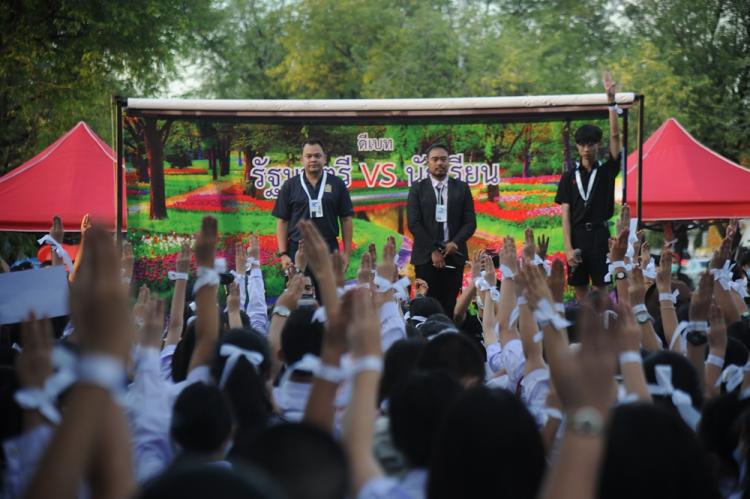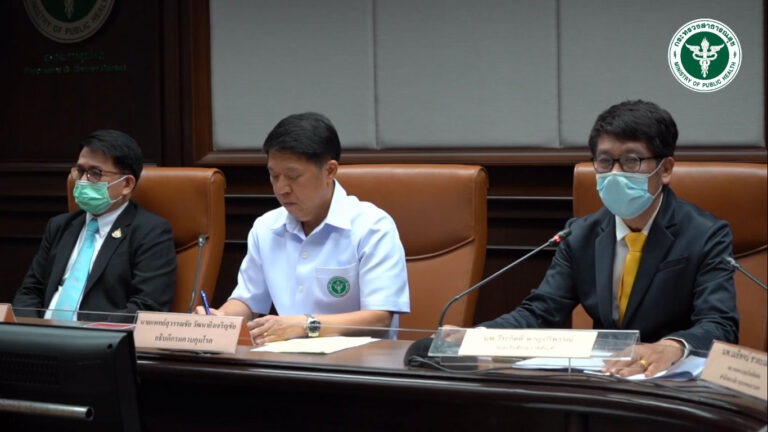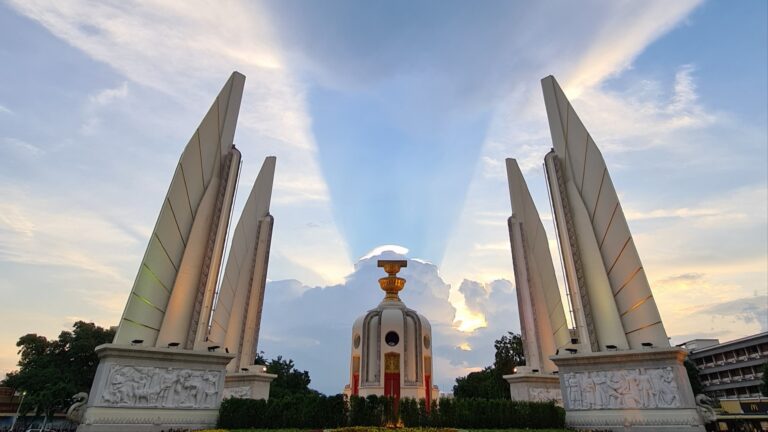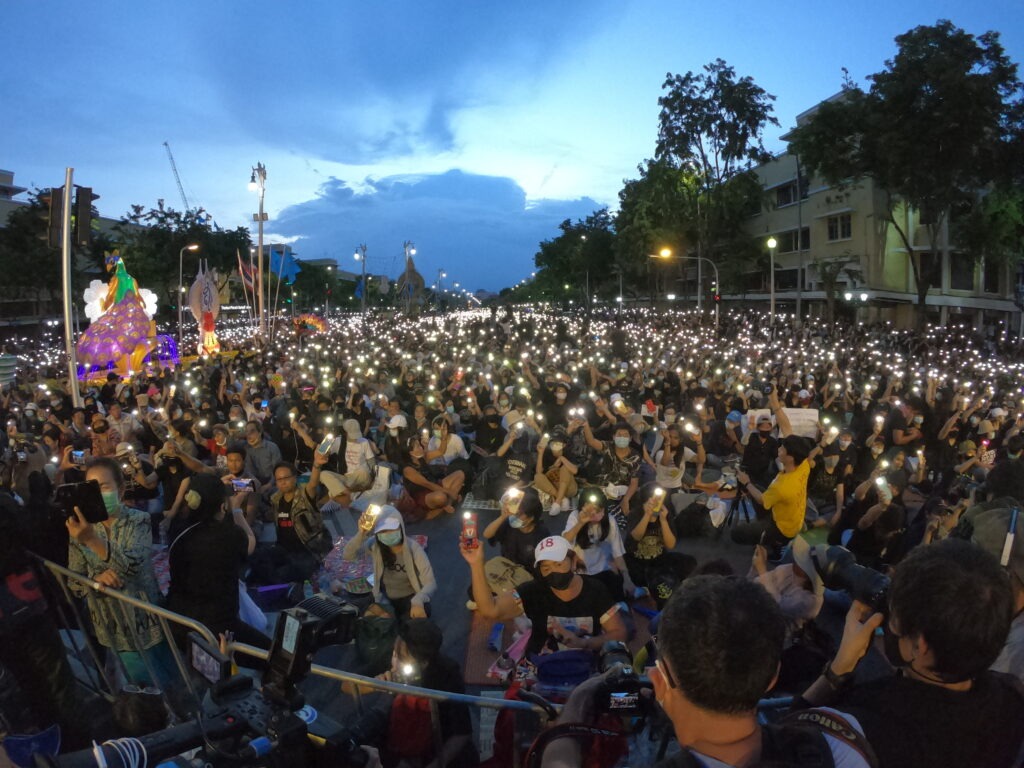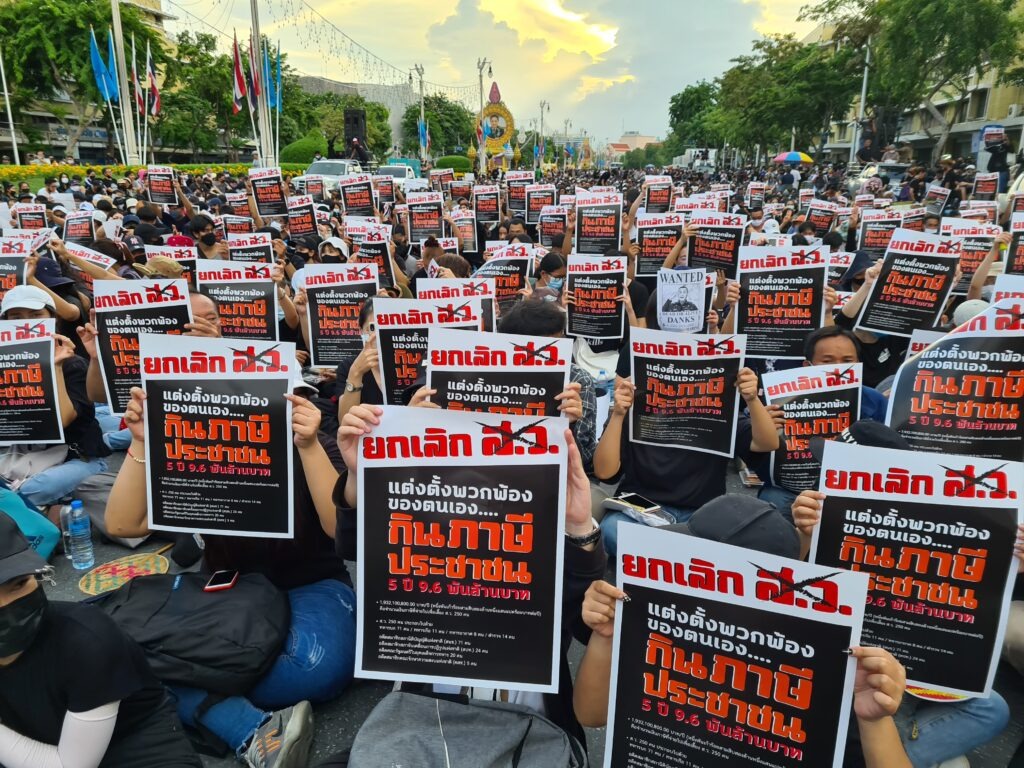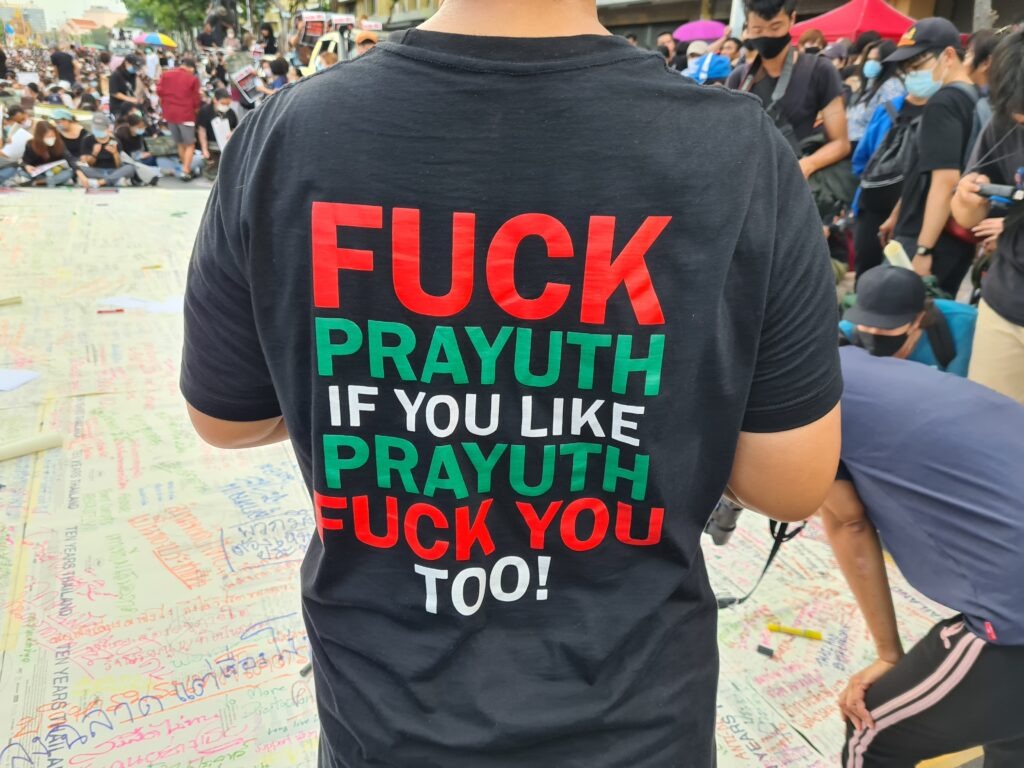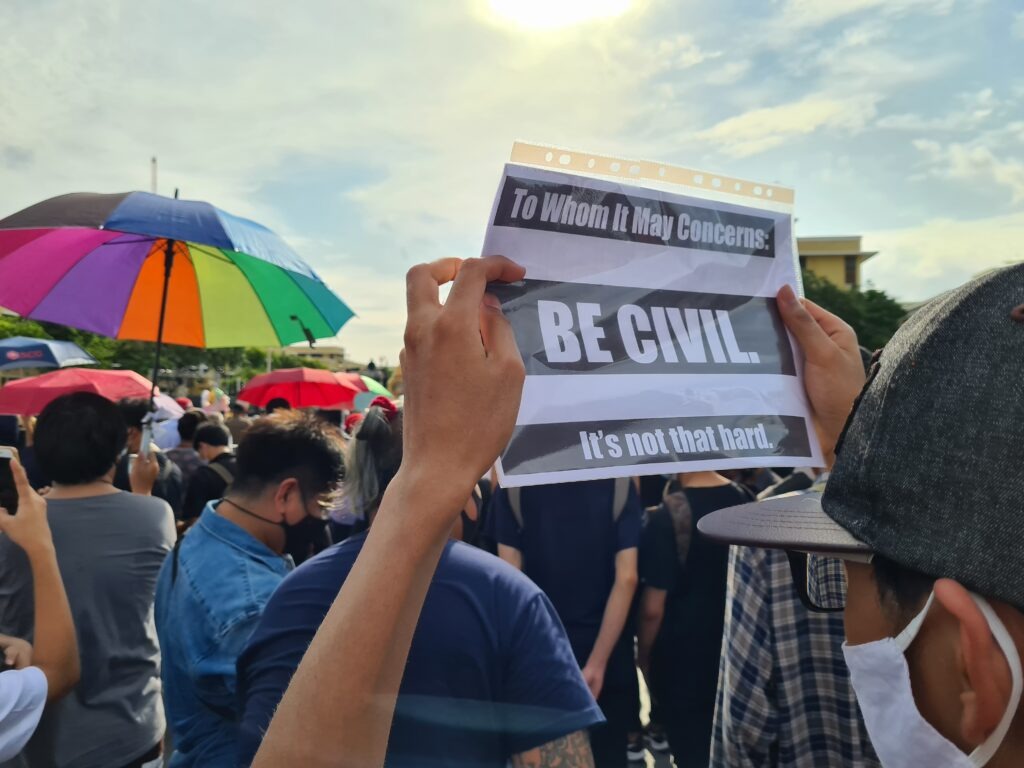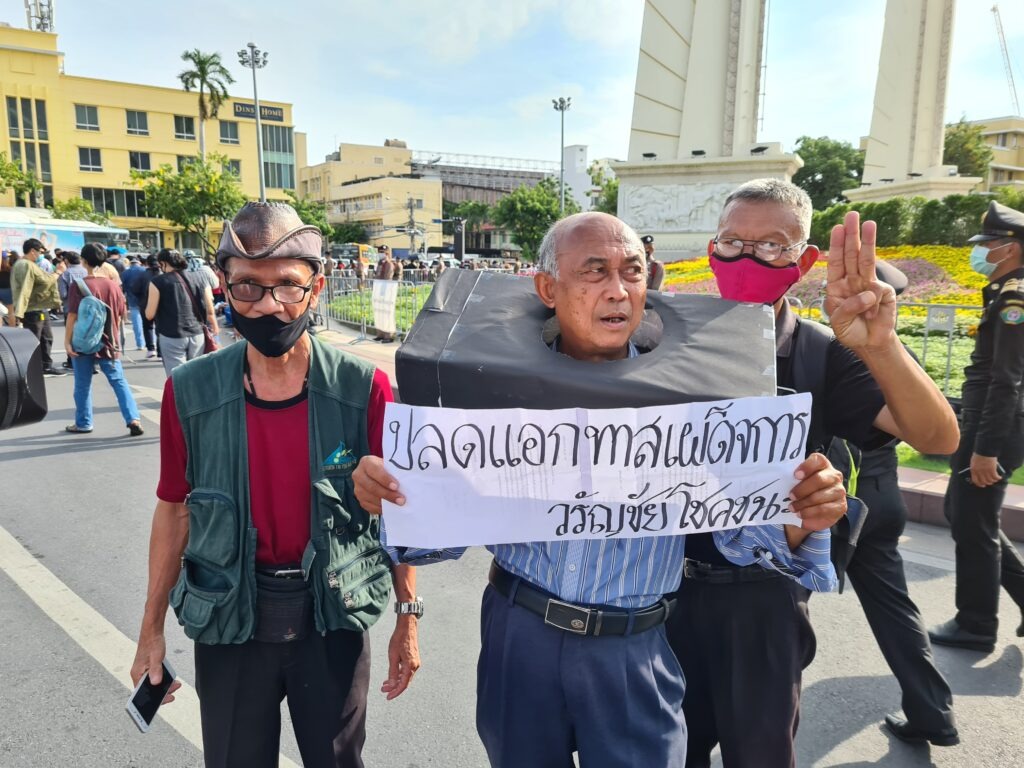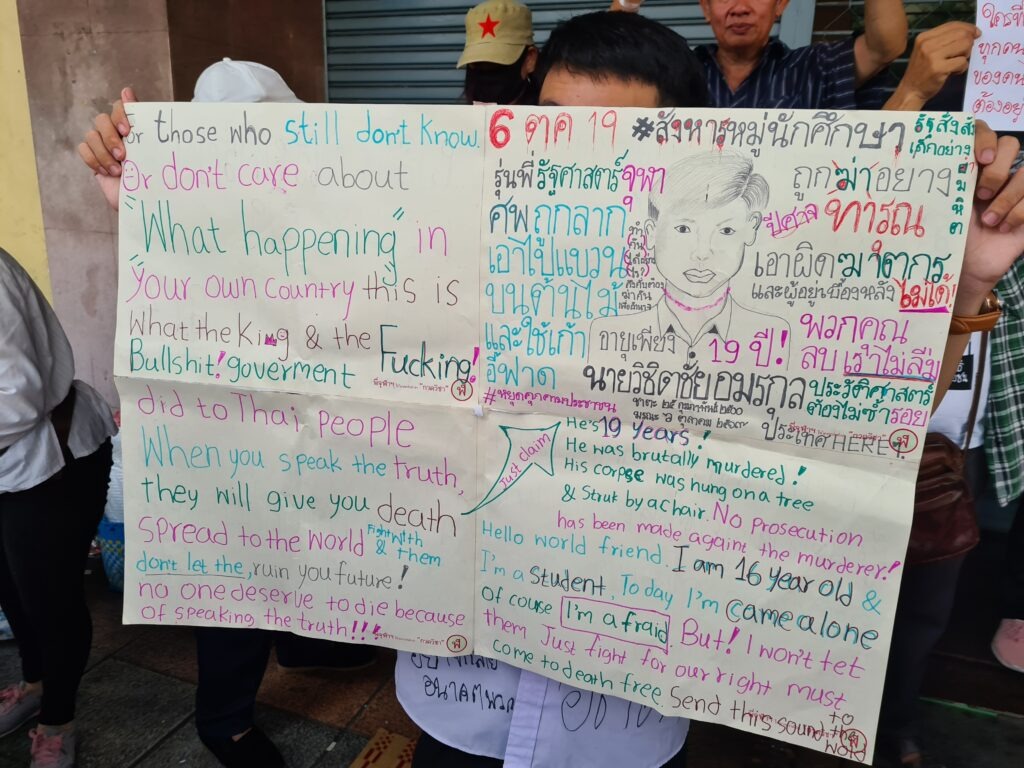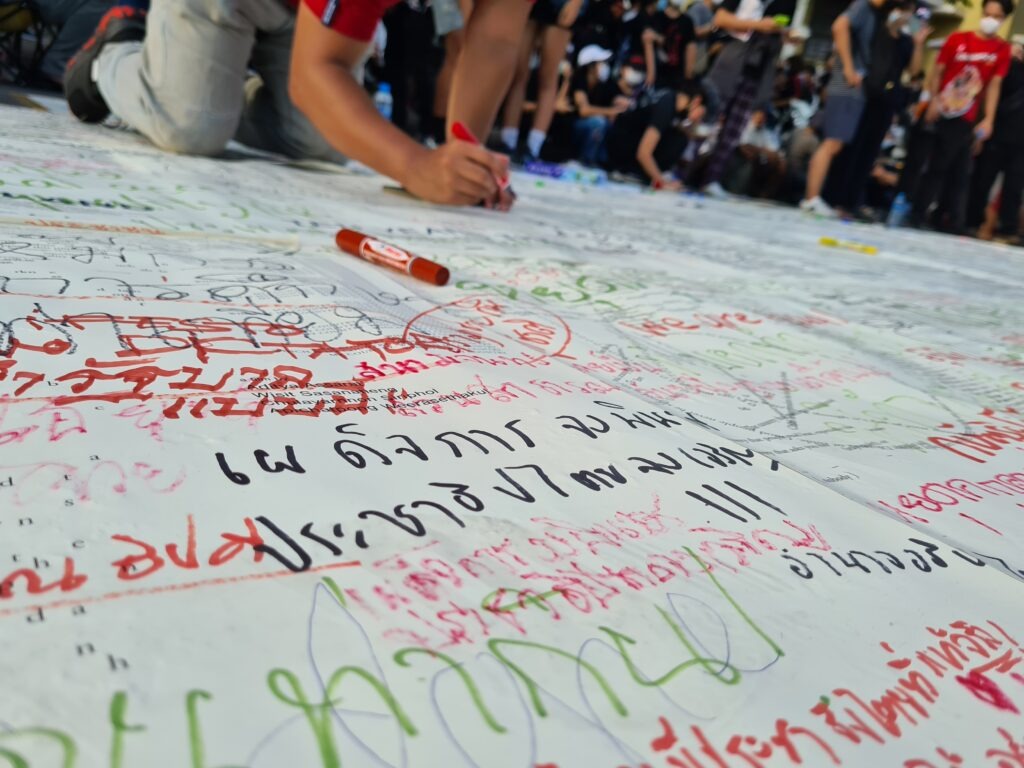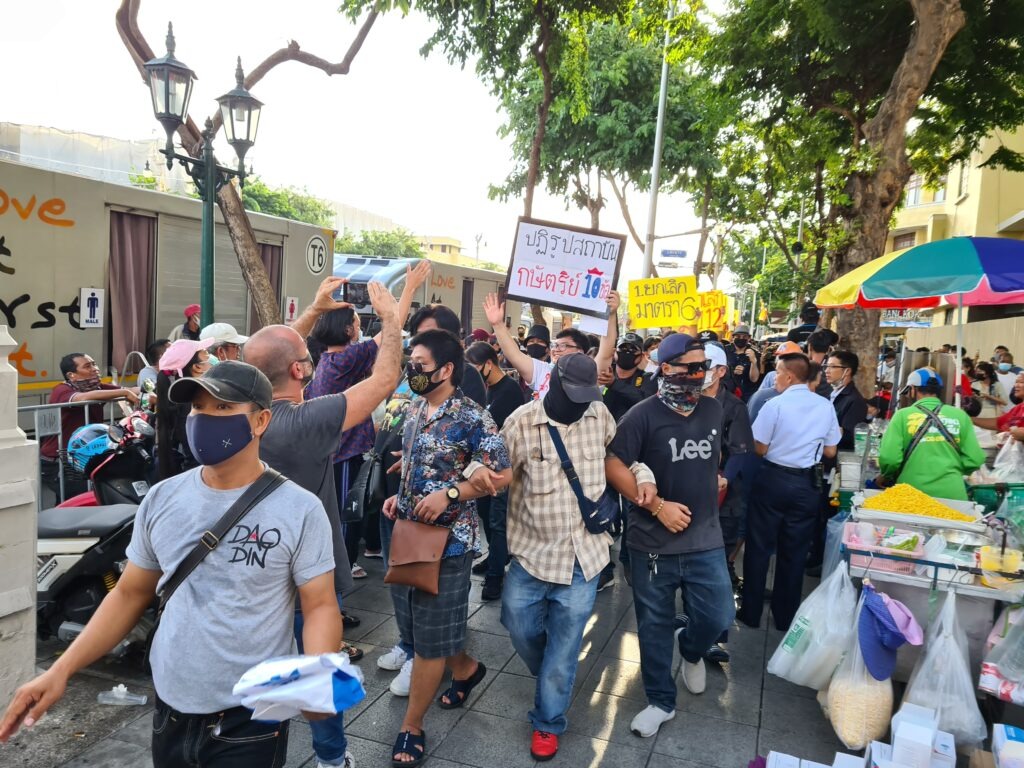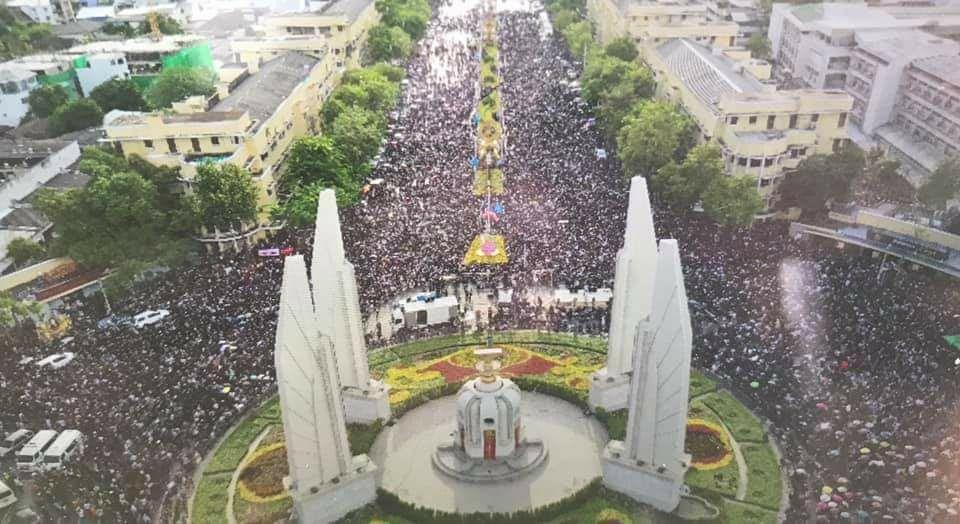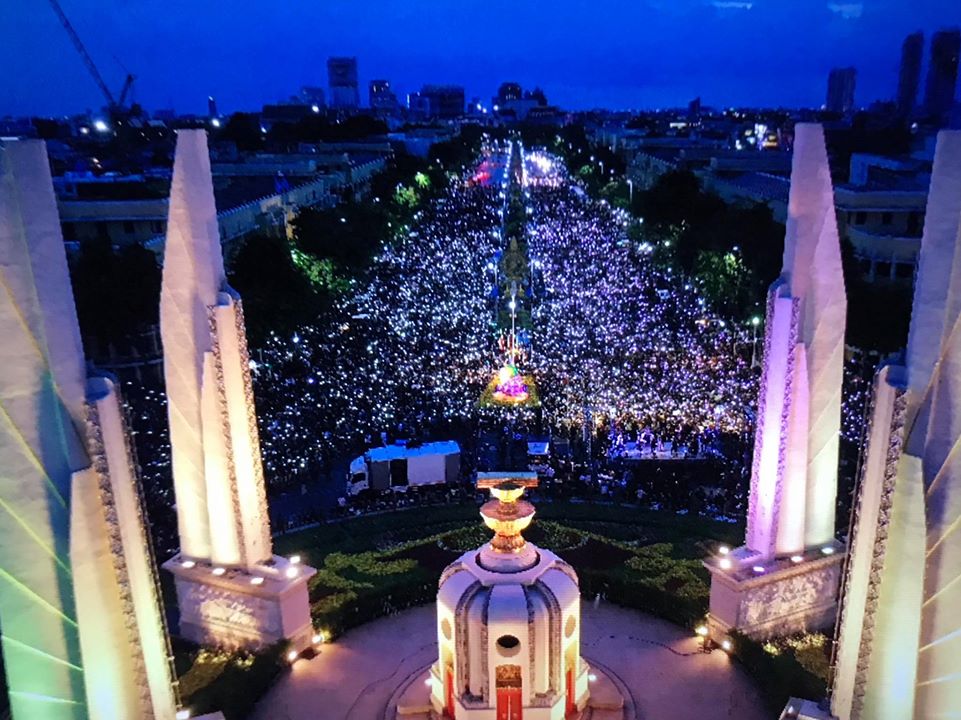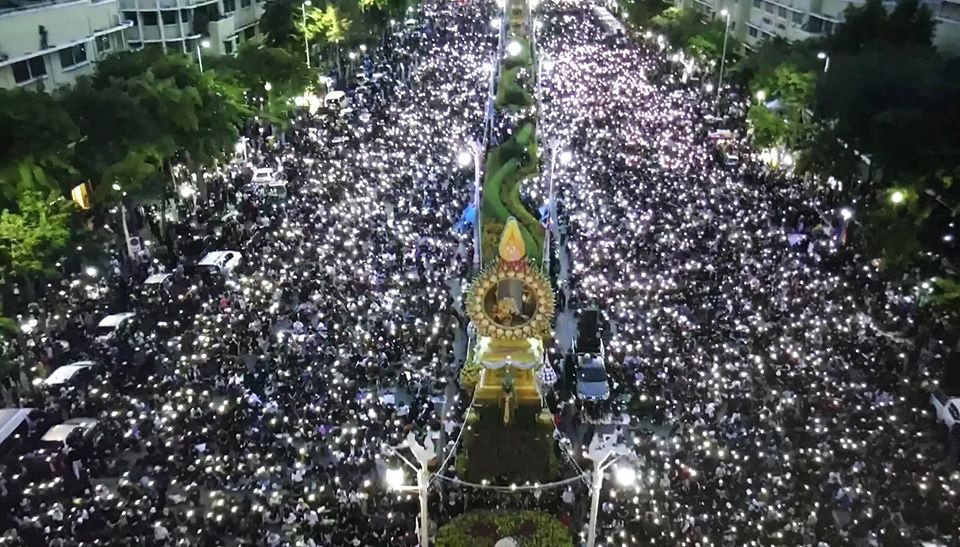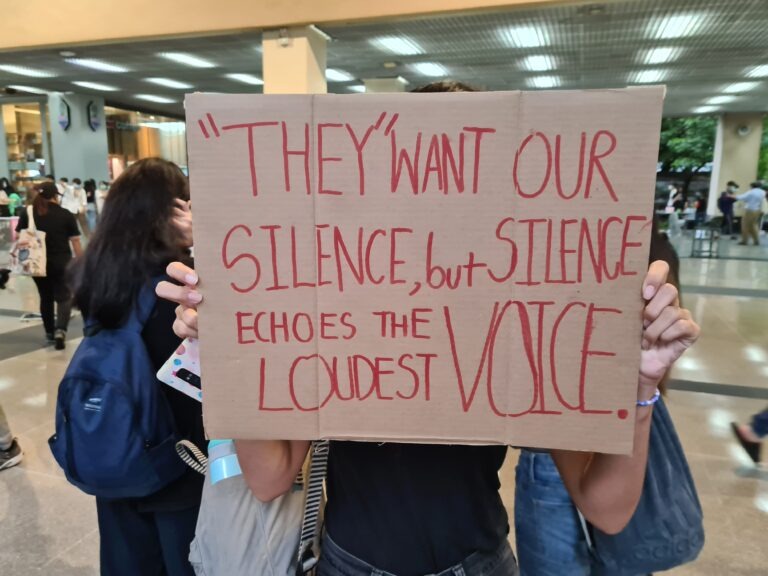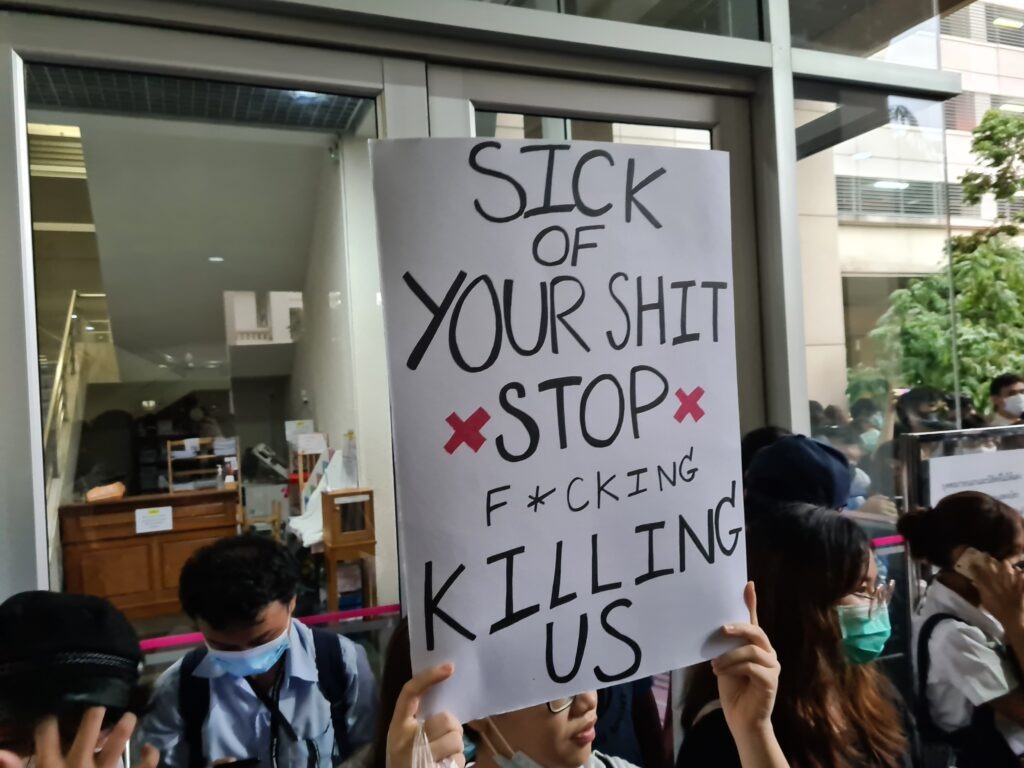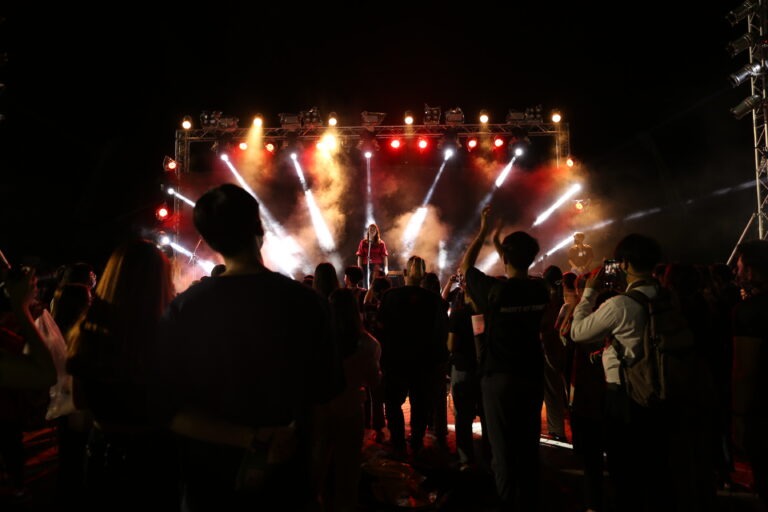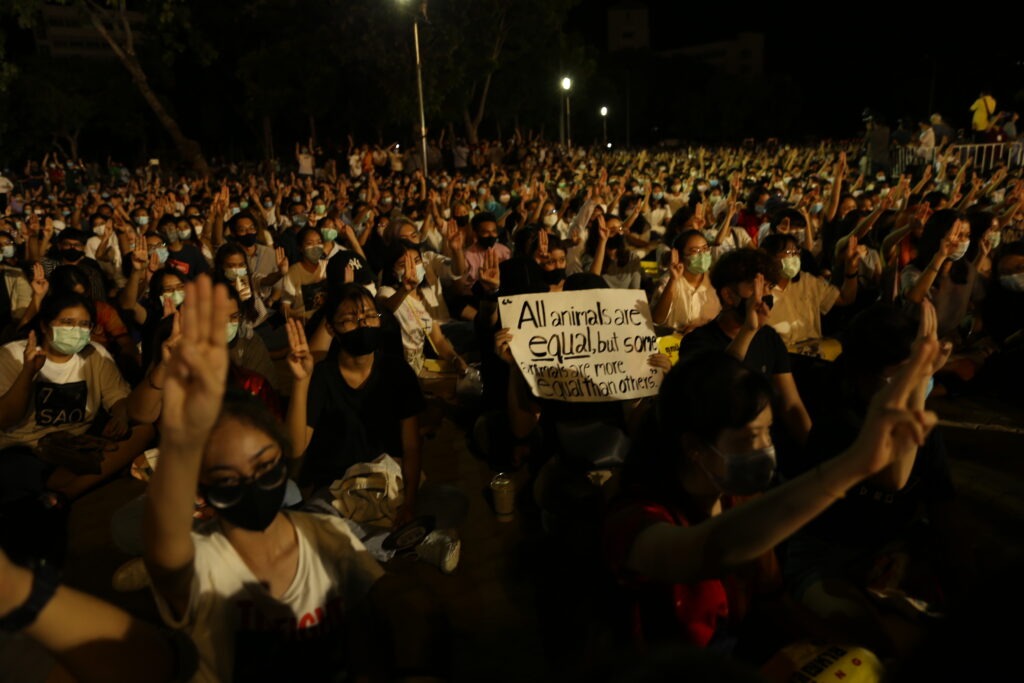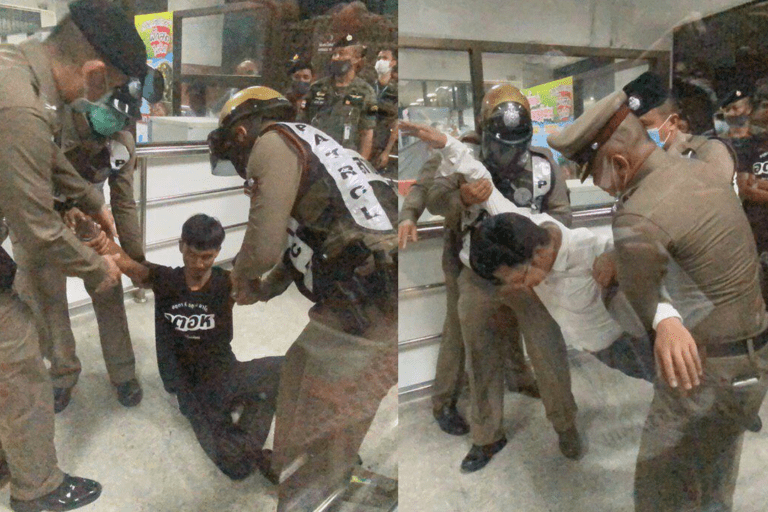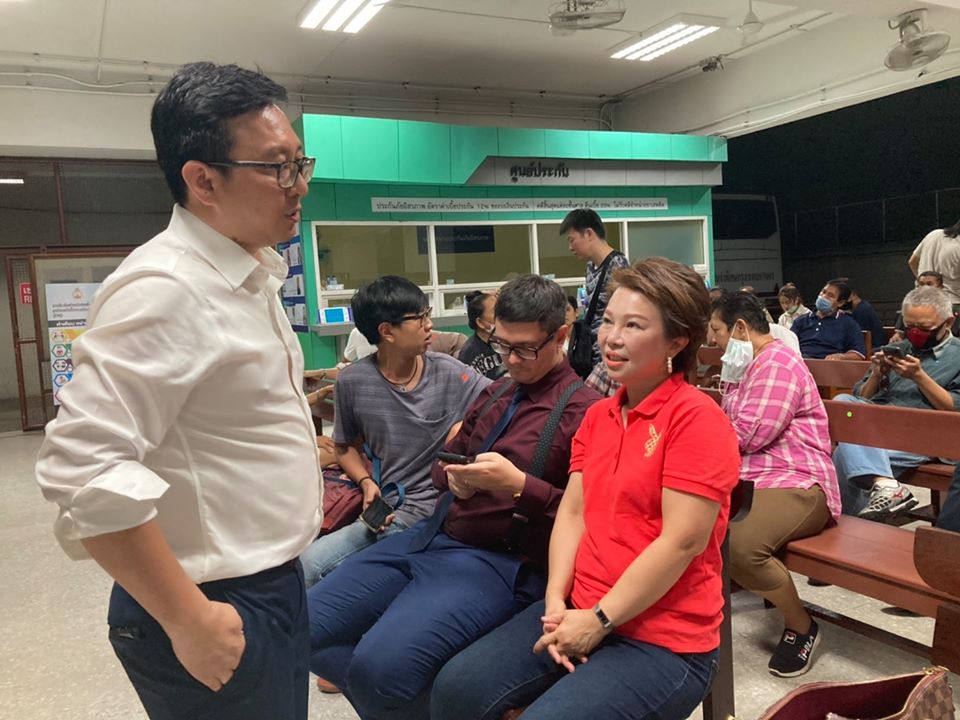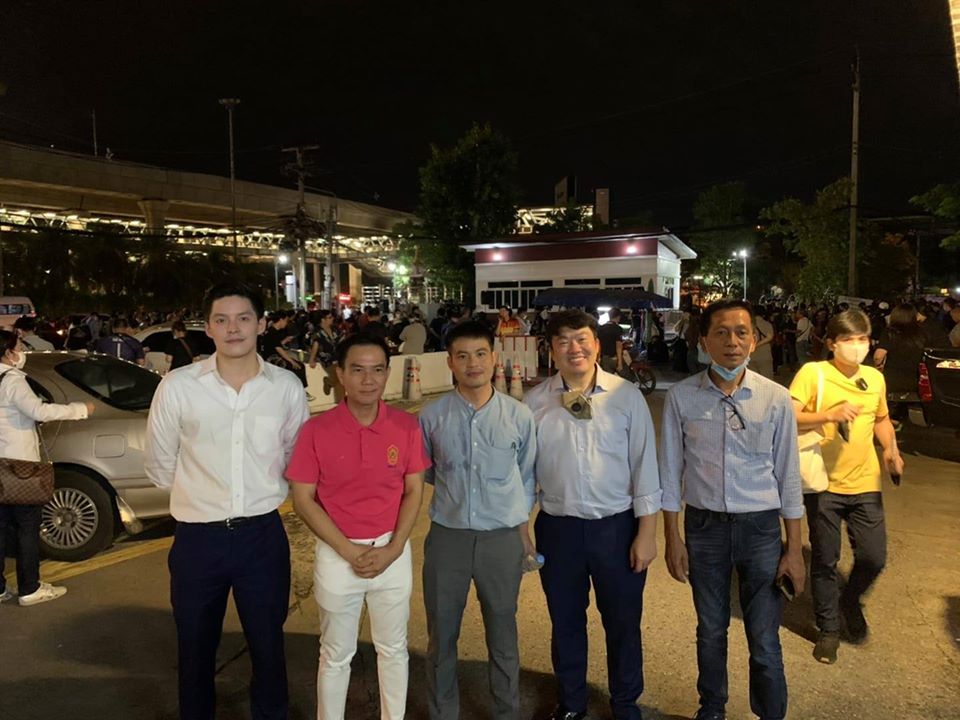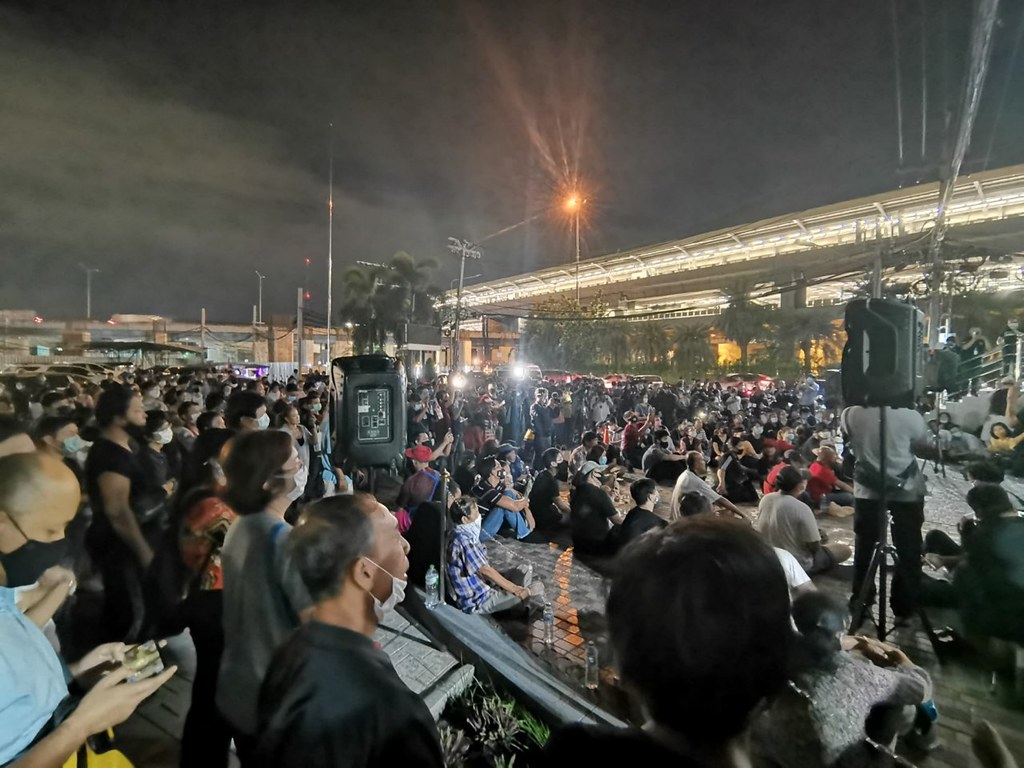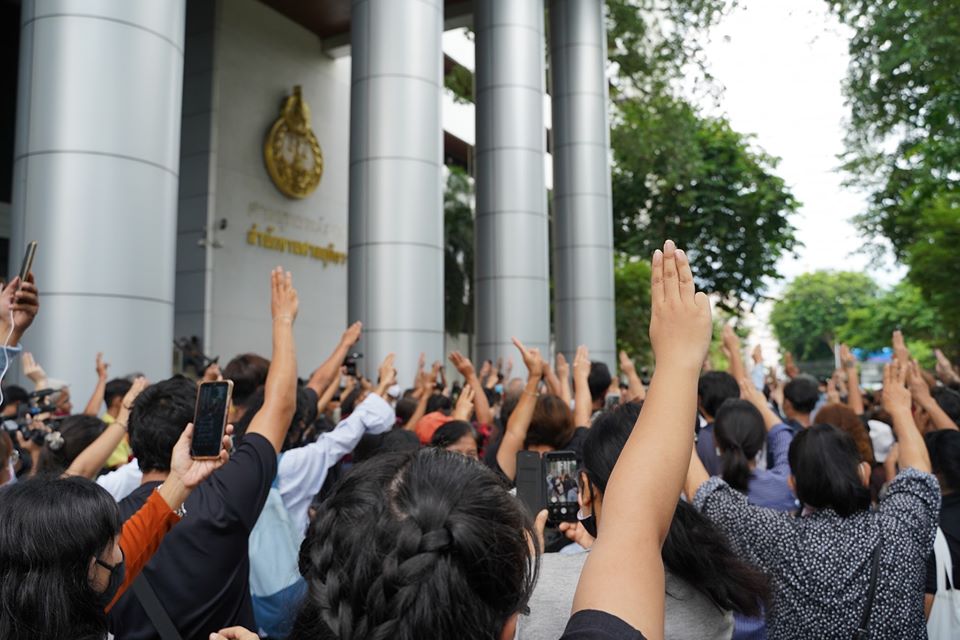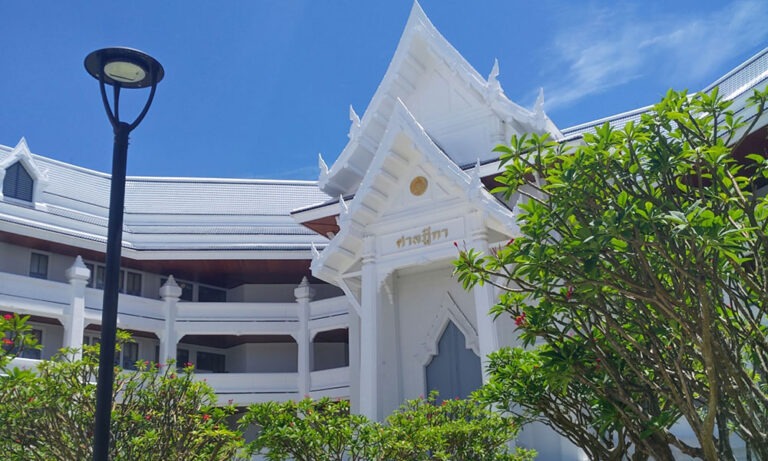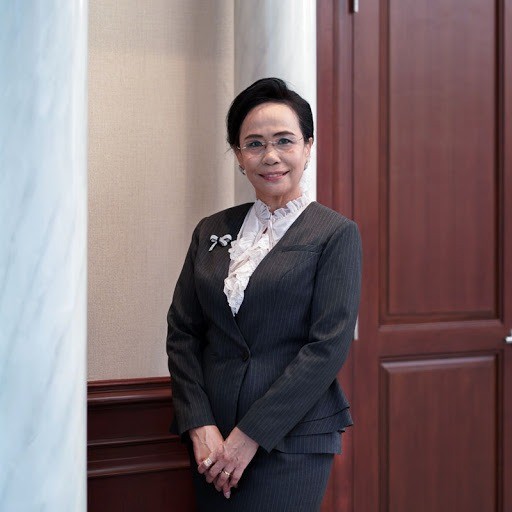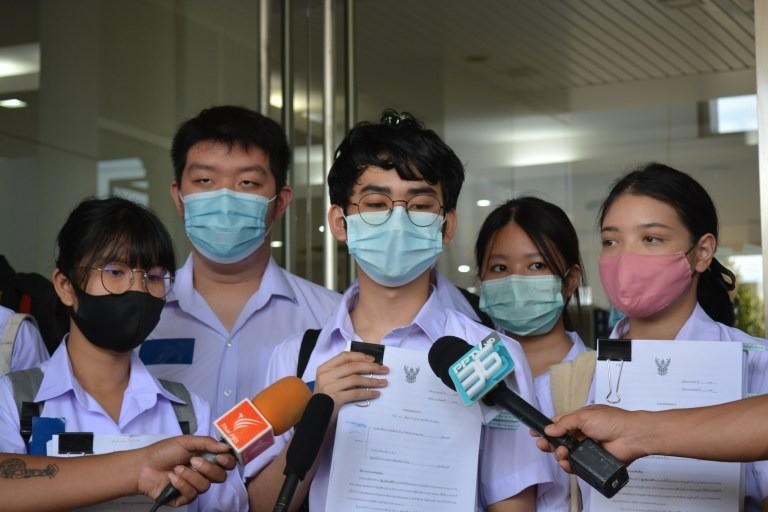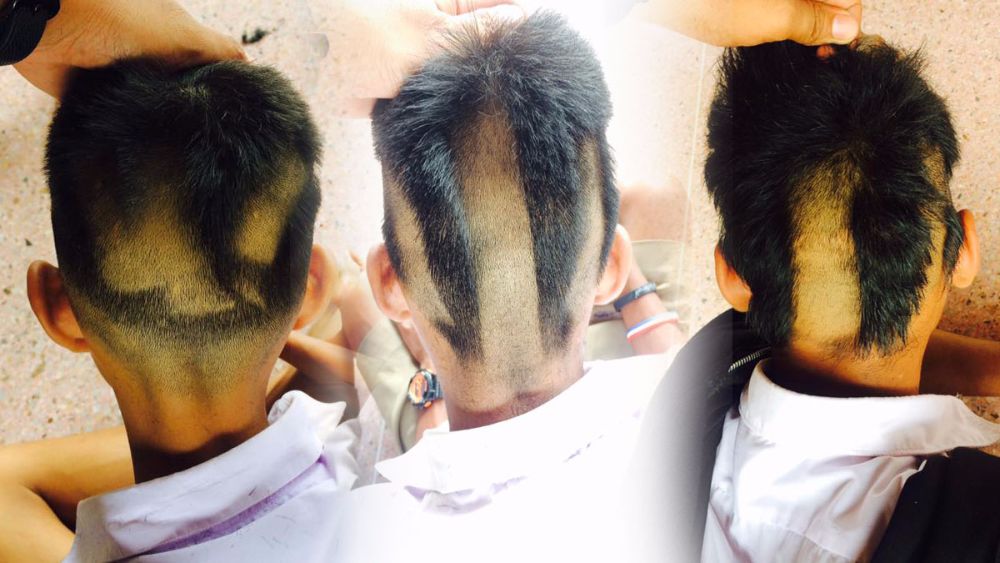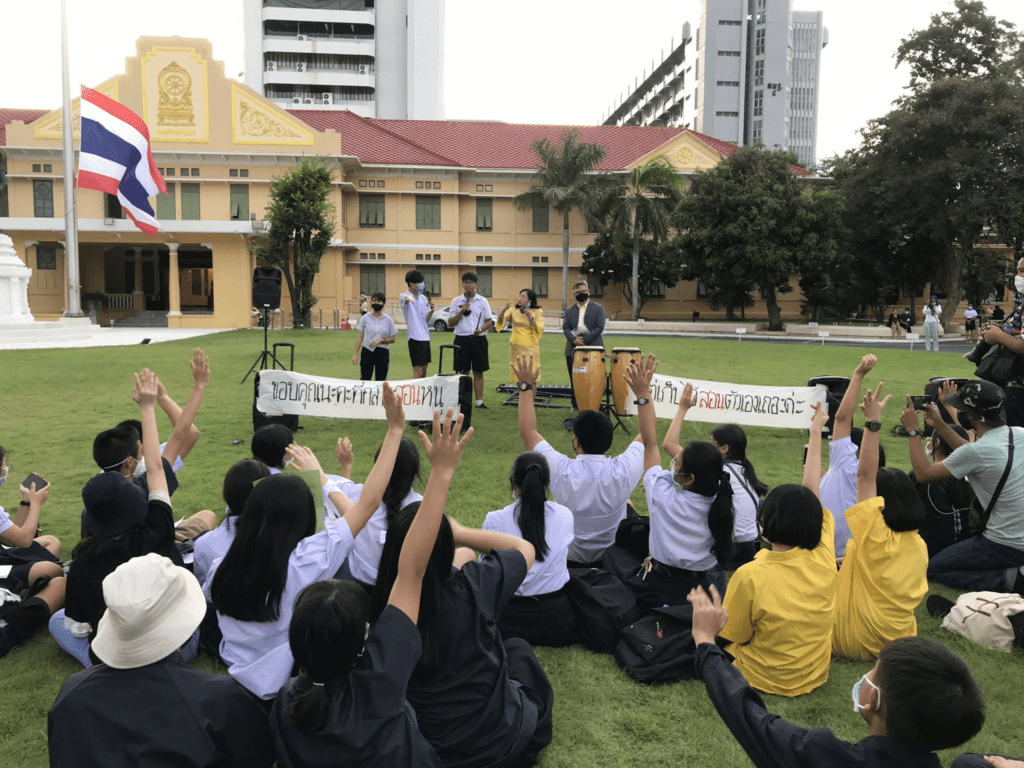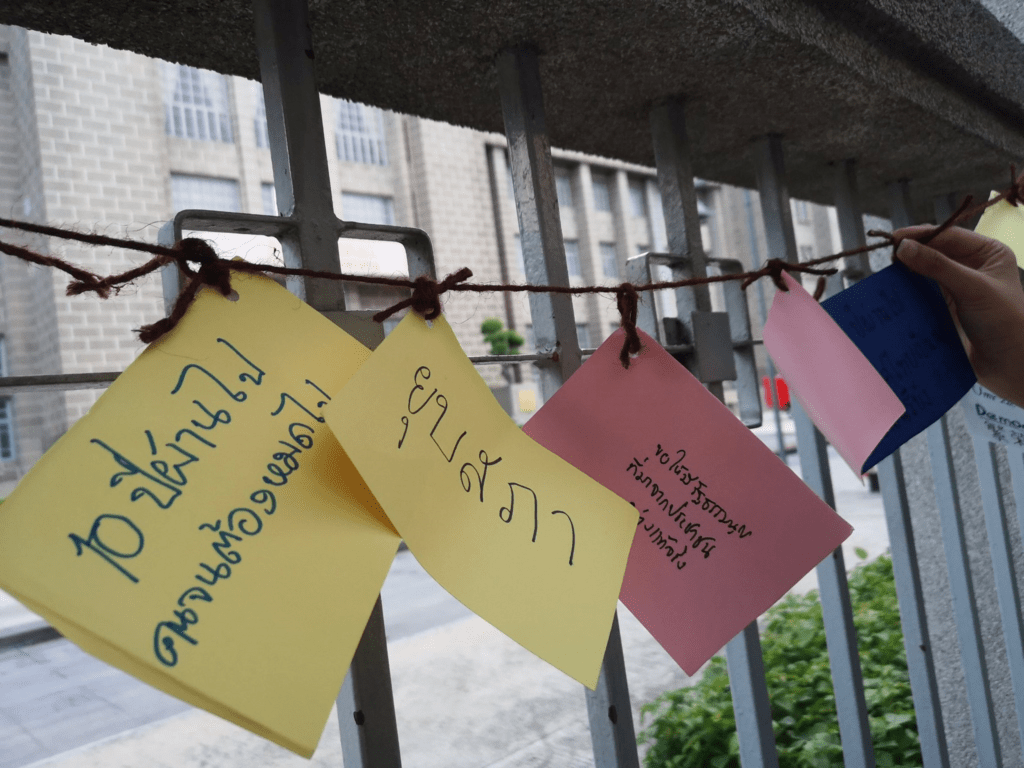THAILAND. Bangkok. High schoolers from over 50 schools across the country came together on 5 Sept to demand an education reform at the Ministry of Education (MOE) while the Education Minister Nataphol Teepsuwan also joined a student leader in debating the issues.
The students’ demands were an end to harassment on students, an abolition of outdated rules that violate student rights, and a reform of the whole education system. They asked the minister to resign if he cannot address those.
Most participants were under 18 and came in student uniforms.
The wall of the MOE was decorated by funeral wreaths with names of schools of student organizers.
There were symbolic expressions throughout the event such as singing parody music, blowing whistles, Miss Education pageant contest skit, and mourning over victims of suicides caused by education problems.
The debate on the education issues lasted about an hour.
The education minister made a move before the youth
Only hours before the event, Teepsuwan held a press conference in front of the ministry addressing proposals from students, as The Standard reported.
He said the ministry is ready to push forward some, but not all, changes students proposed.
- Haircut policies: The minister has dropped a section of the regulations that allowed school authorities to determine what is appropriate for students.
- Dress code: There is no change in the dress code regulations. The minister cited student uniforms rules in other countries, the security of students, discipline, and inequality.
- Gender inequality: The minister said the cabinet has passed the Civil Partnership bill, which is a good sign that shows understanding toward the LGBTQ+ community.
- Harassment: The minister has already temporarily fired 15 teachers, and has opened a way for students to file complaints.
- Overloaded duties of teachers: The minister said he is ready to change this.
- Educational inequality: Private sectors will have more opportunities to provide educational resources through the MOE’s platform.
- English learning: The cabinet has approved hiring more foreign teachers.
- Curriculum: The ministry is aware of the flaws seen in the current curriculum and plans to review it in 2022.
- National test: The ministry will reconsider this year’s national test because students’ learning opportunities have been affected by the pandemic.
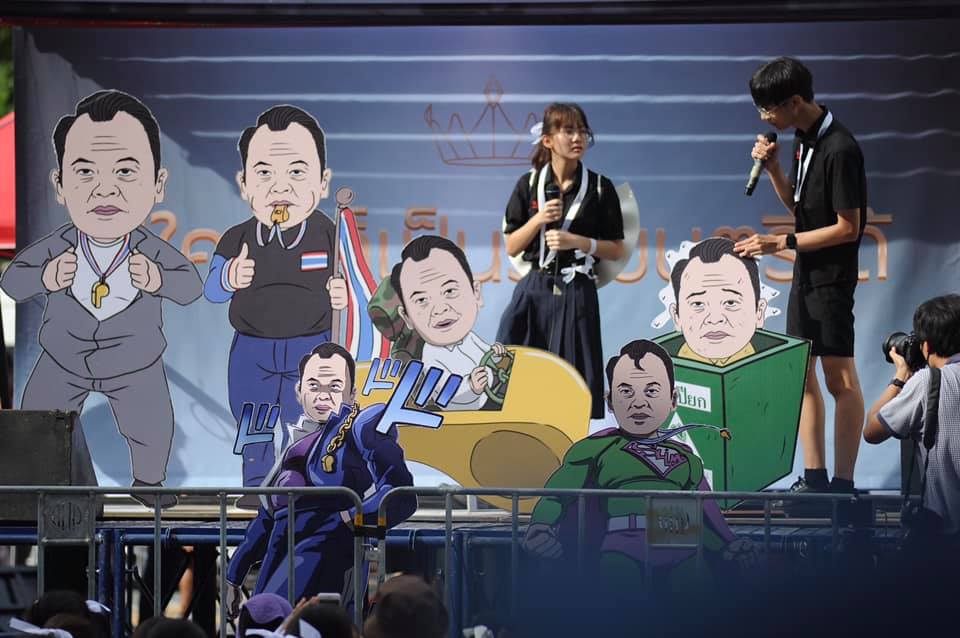
Teepsuwan said he was not looking forward to debating with students because debating in his definition must be a conversation between “people who have different opinions,” but he said he has the same goal as the students, the goal of improving the education system.
He said it was his right not to go talk to students, but he ended up going on stage.
When asked by a reporter on the condition students have for him, he said he saw students pressuring him to resign as harassment.
Teepsuwan was one of the protest leaders who pressured Prime Minister Yingluck Shinawatra to resign in 2014.
That political unrest later resulted in a military coup, in which it has put in place the current authoritarian regime.
High schoolers have been active
Following the mass university student-led protest in Bangkok on 16 Aug, high school students across the country began showing solidarity with the protesters by doing a three-finger salute, which is known as a dictatorship-opposed sign, during the national anthem. Many of them were harassed by their teachers.
On 19 Aug, over 300 high school students protested for student rights to express their opinions on campus as well as other education-related issues in front of the MOE.
They also blew whistles to drive the education minister out as he discouraged students from participating in political activities.
A whistle was used as a symbol of the People’s Democratic Reform Committee movement in 2013-2014, in which the minister was one of the leaders.
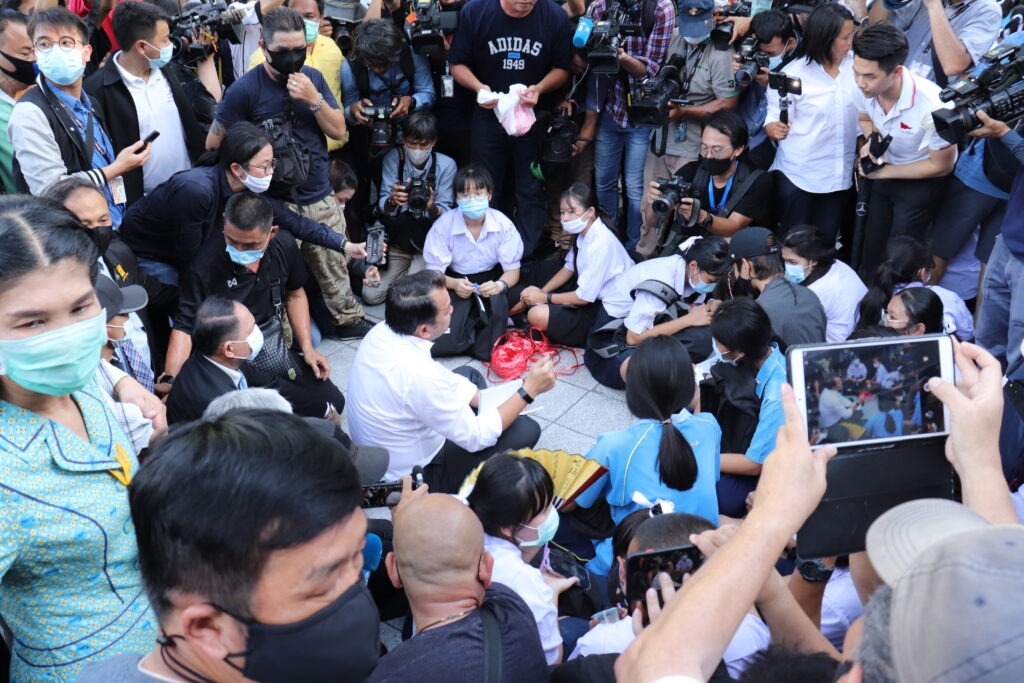
The minister attempted to negotiate with students that day but they refused to let him speak on the stage, instead, the minister had to sit on the ground while debating with student leaders.
Prior to these events, the students also filed a lawsuit against the outdated haircut policies and hosted a pride parade advocating for gender equality in schools.
